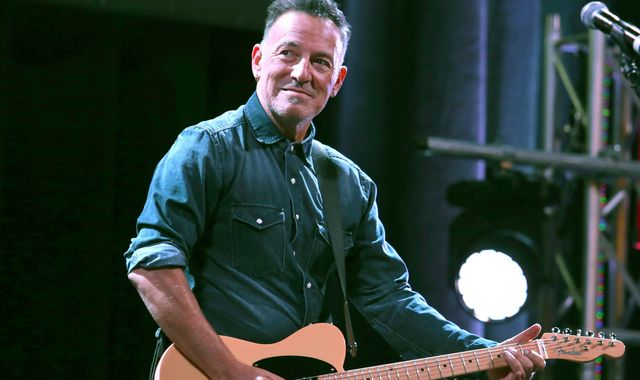COVID-19: When will lockdown be lifted? If the PM follows the science it will happen very, very slowly
Written by News on 12/02/2021
When will the prime minister lift lockdown? He is due to set out his roadmap on 22 February and there is some clamour for a firm commitment.

Frustratingly, however, the most likely answer is: it depends.
It depends, first, on what you mean by lockdown.
Lockdown is not a binary state: you’re not either in it or out of it. Before he decides when to ease restrictions, the prime minister needs to know what he will ease them on.
There is wide agreement in and out of government that schools should go back as soon as possible, so this will almost certainly be the first area where lockdown rules are eased.
After that, you might imagine that non-essential shops could return, along with museums, libraries and sporting events.
Perhaps then restaurants and cafes could be allowed to reopen, as they were in the first wave.
Yet this decision is not simple. What makes it hard is that we still do not know for sure what effect reopening a sector will have on the outbreak.
It has been said, for instance, that opening schools will increase the R number by 0.5.
The evidence is sketchy, but it can’t be written off altogether: even if children don’t increase transmission significantly, their return to school might send more parents back to work, and so raise infections that way.
Live COVID updates from the UK and around the world
We have limited information to go on and what we do have does not always incorporate the effect of the new, more transmissible variant.
This is why government scientists say that it is crucial to approach reopening cautiously. They want the prime minister to ease restrictions in stages, pausing each time to measure the effect of the change.
One idea that has been floated, I understand, is to reopen schools in mid-March, two weeks before the fortnight-long Easter break.
Looking at the data from that would allow scientists to see if it was safe to bring back students in a more permanent way over the summer.
Could gyms or football matches be reopened in the same staggered way? It is hard to imagine, but that is what scientists would prefer.
The complications become even more daunting once you start to try and work out when these restrictions should be lifted. Once again, it depends: this time on the criteria the prime minister will use to make his decision.
Some Conservative MPs have suggested that hospitals should provide the crucial measurements. According to the last figures, there are still more than 25,000 people in hospital with COVID-19, but that number is dropping at some speed. Could it fall fast enough to reopen the economy by mid-March?
Government scientists warn that, if he followed this advice, then Mr Johnson would be playing with fire. Not nearly enough people have been vaccinated, they say, to give the population widespread protection against COVID-19.
If lockdown was lifted all at once then infections would bounce straight back to their previous level, followed inevitably by hospital admissions. Before too long, we would be back in lockdown for the fourth time.
With this in mind, it might make sense to introduce another criterion: the number of people who have had a dose of the coronavirus vaccine.
Israel, the country with the fastest vaccination programme in the world, has followed this route.
According to the Times of Israel, it will reopen street shops, gyms, cultural and sporting events when several conditions are met. One is that at least three million Israelis have received their second vaccine shot. The other is that at least 90 per cent of over-50s are vaccinated.
If all goes to plan, then some parts of the Israeli economy should be ready to open by 23 February. In the UK, however, reaching those milestones would take much longer, because the government’s one dose strategy has delayed the number of people being given full protection from the vaccine.
An analysis by The Telegraph found that if the UK applied the same reopening criteria as Israel, then non-essential shops would have to wait until late May to reopen, while cafes and restaurants would be closed until June.
If the UK opened based on coverage of single doses alone, then it would be possible to lift restrictions in March, but there is very little data to help scientists see whether that would be sensible. Politically – and morally – it would a big risk.
Subscribe to the Daily podcast on Apple Podcasts, Google Podcasts, Spotify, Spreaker
To make the prime minister’s decision even more difficult, there is another complicating factor: the risk of new variants.
Even if hospital admissions fall, if infections remain high then there is a danger that a partly vaccine-resistant strain could spread among the population. Once more people are vaccinated, there is also a risk that the pressure on the virus will push it into even deadlier forms.
For this reason, scientists are urging the prime minister to take reopening very, very slowly. They want cases to be as low as possible before any restrictions are loosened – perhaps even lower than it was when the first lockdown was lifted.
Unfortunately, the latest ONS data suggests that the percentage of people with the virus is still much higher than it was in June and July.
If the prime minister follows this advice, then we will be spending a lot more time at home.
(c) Sky News 2021: COVID-19: When will lockdown be lifted? If the PM follows the science it will happen very, very slowly







